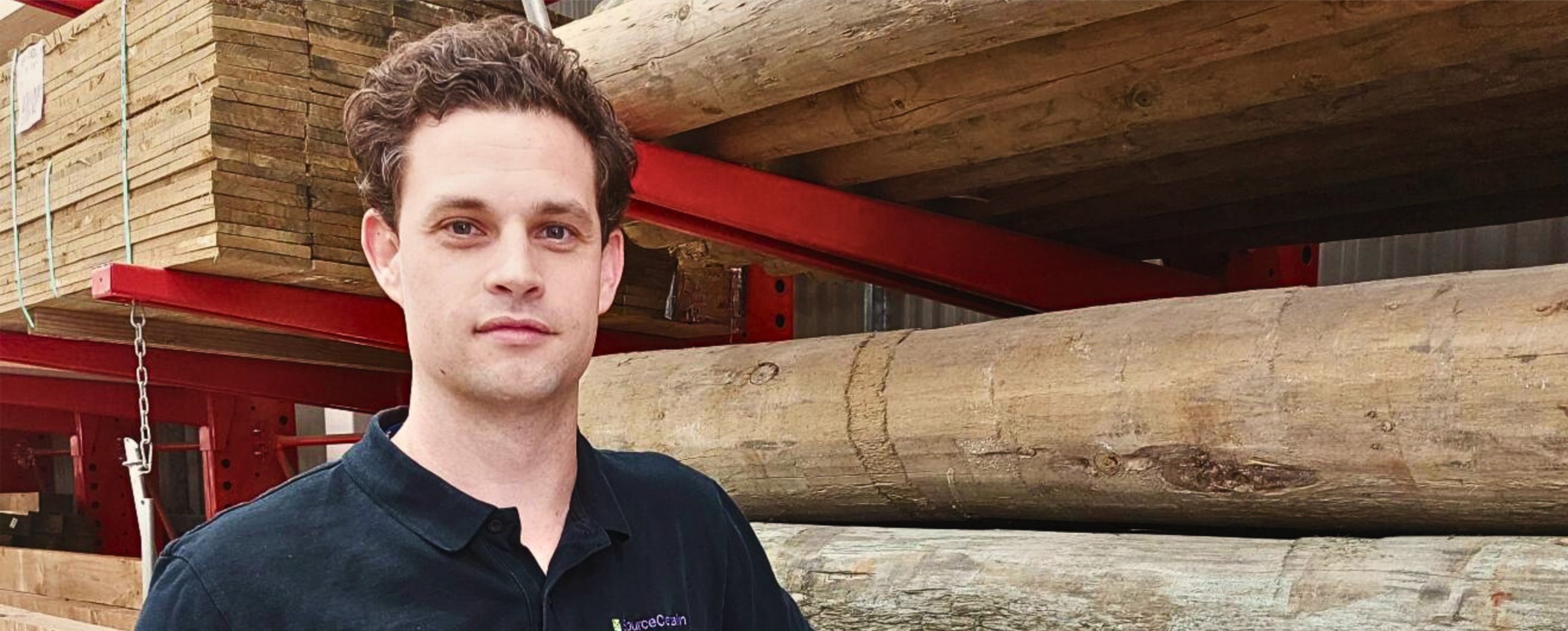
- Author: George Hazim
- Posted: May 24, 2023
The CFO Supporting Global Supply Chains
If every roll of a dice produced better than even odds, you’d be confident each throw delivers favourable outcomes.
That’s if you happen to be betting on positive results.
The odds of furniture produced overseas, prominent in Australian homes and businesses, containing illegally sourced timber might be the same as a coin toss if estimates from the World Bank and Interpol are to be believed.
Illegal activities lower global timber prices by between 7 to 16 percent denying businesses in Australia a fair chance to compete due to the higher costs of domestic production and manufacture.
Australia’s Department of Agriculture, Water, and Environment suggests illegally logged timber and timber products costs Australia in-excess of $400m annually.
The focus now is to protect the jobs of 50,000 Australians, a $2.5bn industry, and stop China acting as the overseas manufacturers for illegally sourced timber.
The importation of illegally sourced timber has been an issue the Australian Government has long been aware of. In 2012, it introduced the Illegal Logging Prohibition Act, requiring business to ensure timber and timber products imported or processed are legally sourced.
However, the Act has been a toothless tiger compared to its EU and US counterparts ‘The European Union Timber Regulation’ and the ‘Lacey Act.’
Tackling the problem requires the forensic expertise of Perth-based company Source Certain to counter what the Federal Government has found difficult to resolve.
Source Certain provides supply chain traceability integrity and verification services to companies globally to solve what Governments and certification systems have struggled to resolve on their own.
In 2022, the UK Government engaged Source Certain to authenticate Russian wheat imports. Russia was passing off wheat from Ukraine as its own.
Australia’s Prawn industry, the global gold, precious metals, diamond, meat, fisheries, and water industries, along with other sectors have all sought Source Certain’s technology and expertise.
Nick Fiori, Source Certain’s CFO knows he must tread carefully given the sensitive diplomatic and trade implications involved.
While Australia battles to control the scourge of illegally logged timber and furniture flooding the Australian market Fiori, along with its Chief Commercial Officer, Katherine Campbell, and Charlie Watkinson, GM for Technical and Commercialisation, are developing strategies that will diminish the impact the practice is having on the sector.
An iron fist in a velvet glove tactic while manoeuvring carefully will be how Fiori approaches the diplomatic sensitivities associated with the issue.
Throughout the last 60 years, Australia’s timber and logging industry has evolved, and while it comes with a fascinating history Fiori says, “History aside, when Australia and the world began outsourcing manufacturing, we lost control.”
“Where we might have had input about where we’re getting our materials from, the close relationships we’ve had with suppliers has eroded. Now we’ve effectively become designers of products.”
Part of Fiori’s strategy is to reinvigorate the sector and bring manufacturing back to Australia.
“By doing so allows the sector to determine its own fate and know exactly what’s happening.”
“People may see it as self-protectionism, and they’re right, but in essence its reforming the industry and strengthening it economically.”
“What needs to happen is to have the Australian Government amend the 2012 Illegal Logging Prohibition Act (ILPA) so it can deal with the challenges the industry faces, giving it greater protection.”
Watkinson says the Act has undergone some minor amendments since 2012.
“The soft start period of ILPA ended 2018. It required companies guaranteeing illegal timber wasn’t placed on the Australian market. However, it was thought only corporates could afford to properly vet their supply chains – then Deemed to Comply was introduced.”
According to Katherine Campbell, Deemed to Comply was meant to remove the burden of checking on everything, “but didn’t perform the way it should have”.
“Deemed to Comply was for anything FSC or PEFC certified, the two most common certification schemes in timber – set up as sustainability and not legal frameworks – they’re great traceability platforms but can’t guarantee provenance or legality. No where else in the world are these schemes deemed sufficient to do that.”
Traceability is seen across industry sectors as an infallible method of determining origin and identity, but according to Katherine Campbell, that’s not entirely accurate.
“Traceability has its challenges, and as much as its good, it can be cheated as simply as using a photocopier. It’s exactly what manufacturers have cottoned on to – using the problems in the system where there aren’t enough checks or people on the ground to check out areas of production and calculate mass balance,” Campbell says.
“When Australian businesses communicate with their overseas suppliers, they’re told everything’s fine, they have documentation and are certified, that’s considered Deemed to Comply, and that’s how illegal timber finds its way into the Australian market.”
Lumber Liquidators’ landmark $13.2m (USD) Lacey Act penalty was the product of illegally logged timber from Russia being laundered into timber flooring products by Chinese manufactures according to the US Department of Justice.
Forest Trends reported 46 million cubic meters of logs, worth over $24bn, were imported by China between 2005 and 2016 from countries with log export bans.
China’s largest plywood exporter and state-owned foreign trade enterprise was exposed in 2021 by Environmental Investigation Agency for allegedly laundering tropical faced plywood, lying about its origins, and falsely claiming the materials to be FSC certified.
The estimated $240bn a year illegal timber trade funds organised crime, including global terror groups and militias according to the United Nations and Interpol.
“When one country produces most the world’s processed timber products, it disproportionately takes on the risk of aiding and abetting these groups: intentionally or not. Why are we expecting sustainability certification schemes to absolve Australian businesses from risks this large?” Watkinson says.
Trying to stop the illegal logging of timber would always be hard fought, but it’s a battle Fiori says, that sees the pendulum swinging.
“Even though the new laws have been around for a brief period, we’re beginning to see the extension of their powers. In Europe, it’s gone from the European Union Timber Regulation to the European Union Deforestation Regulation. We also care about what the land’s used for after the trees have been cut down.” Fiori says.
“We want to stop incentivizing cutting trees down by regulating other products. The US is extending their Lacey Act with a law called the Forest Act, which is aimed at preventing deforestation products from coming onto the market.”
Putting an end to the practice is an enormous task, which Fiori and Source Certain recognise clearly, but the size of the task is too big to go it alone, to win, “but we can work with businesses to get illegal timber out of the supply chain and make them aware of a problem.”
“You can’t solve a problem you’re not aware of. We’re nothing more than that at the end of the day. But if we’re able to shine a light together with business, we can eliminate illegal timber.” Fiori says.








